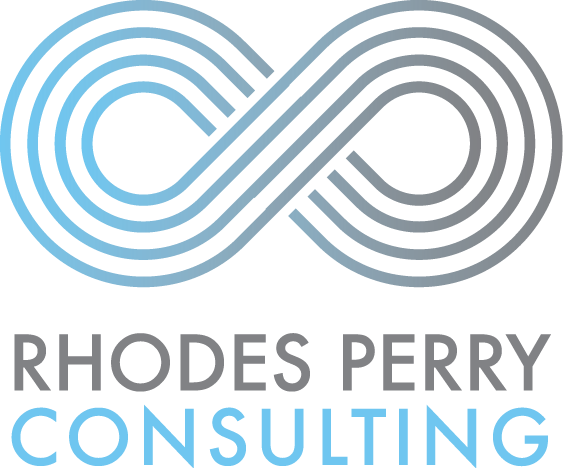
Teaching
We deliver customized in-person and virtual executive learning, leadership development, employee training, and retreat facilitation, equipping groups with the knowledge, skills, and confidence required to build spaces of belonging. Our signature Belonging Learning Series™, one of our most popular programs, is a 12-month immersive experience for leadership teams, people managers, ERG networks, and other teams. Featured content is sourced from Rhodes Perry’s bestselling Belonging at Work™ book series.
Have a learning & development need?
THE BELONGING BASICS™
The Belonging Basics™, our signature skills development program sources valuable inclusion skills, belonging interventions, and policies featured in Rhodes Perry’s bestselling books, Belonging at Work and Imagine Belonging. The program is designed to build a better educated workforce by delivering the inclusion & allyship skills that will help activate an organization’s belonging vision. This L&D program includes 6 learning modules along with supplemental group coaching sessions and a bank of 1:1 coaching hours.
"This skills building series has inspired me to become a champion for belonging in our organization. I've learned how to recognize and address microaggressions, have more open and honest conversations with my team, and create a more inclusive environment for those I lead. It's empowering to know that I play an important role by contributing to a positive cultural shift."
~ S. Patel, Department Director, Orlando, FL
THE BELONGING BASICS™ COVERS:
-
Wrap your arms around what belonging truly means, why it matters, and how you can build it at work by nurturing real and psychologically safe relationships.
After this workshop, you will be able to:
Describe what psychological safety, trust, and belonging at work mean, and why they matter.
Gain simple skills to help you take everyday actions that will lead to building moments of belonging at work.
Practice using these new skills to transform moments of exclusion into moments of belonging.
-
Recognize why establishing trusting professional relationships is the ultimate business currency, and learn how you can practice essential inclusion skills to maintain these relationships, even in the presence of conflict.
After this workshop, you will be able to:
Reframe thinking about conflict and recognize it as a generative trust-building opportunity.
Gain simple inclusion skills you can apply to foster productive dialogue with the goal of better understanding and appreciating your colleagues.
Practice how to transform moments of conflict by increasing team safety with open dialogue.
-
Commit to improving your organization’s culture by examining the transferrable set of leadership behaviors you want to pass along to the next generation of executives in your organization.
After this workshop, you will be able to:
Gain insights as to why inclusive leadership will help transform your culture.
Learn how to practice six inclusive leadership behaviors, no matter your role.
Consider how your organization can systematize and reward inclusive behaviors.
-
Learn the role that both social and positional power play in the workplace and explore ways these sources of power can help bridge across differences to build more safety, trust, and belonging on the job.
After this workshop, you will be able to:
Consider where you do/don’t hold social power based on different contexts.
Identify the ways social power operates within the culture of your workplace.
Practice ways you can leverage your social power at work to foster more safety.
-
Embrace the role you can play to repair from unintentional harm you may have caused, or you may have witnessed, that has caused a rupture at work.
After this workshop, you will be able to:
Distinguish the difference between a good intention and a harmful impact.
Gain a helpful framework that can facilitate repair after harm has occurred at work.
Practice ways you can use this helpful framework when responding to exclusion.
-
Clarify and establish your short and long-term vision to build spaces of belonging at work. This course helps learners put concepts featured in Rhodes Perry’s award-winning book, Imagine Belonging, into action.
After this workshop, you will be able to:
Create a narrative of your leadership journey to shape and influence your team and organizational culture.
Name the transformation you would like to see in the way you lead and how that impacts your work culture one year into the future.
Develop a commitment statement to remain accountable to your vision for the year ahead to help measure progress and course correct as needed.

Ready to Find Out More About The Belonging Basics™?
Book a discovery call with Team Belonging and start your journey toward creating more safety, trust, and belonging at work.
IMAGINE BELONGING RETREATS
Seeking a facilitation solution for your next leadership or team retreat? We help executive teams, people & culture departments, and other workplace teams design retreat experiences to align their purpose, values, and agreements with their organization’s culture vision. The goal is consistent: enhance team safety, trust, and cohesion to increase engagement. Our retreats carefully infuse individual reflection, small & large group connection, and rejuvenation through meaningful activities. We will help your team put shared values like community, collaboration, joy, and belonging into action.
"The organizational retreat was a transformative experience for me, and my colleagues. It provided a safe and supportive space to connect on a deeper level and re-evaluate our organization's core values. We shared personal stories about the values that matter most to us, which helped to gain a deeper appreciation of each other. The exercises and discussions were thought-provoking and inspiring. I feel more connected to my colleagues and more committed to my organization's mission."
~ K. Lee, Senior Manager, Seattle, WA.
CASE STUDY
-
A large healthcare organization with nearly 1,000 employees in the Pacific Northwest sought to reimagine its core values to better align with its vision, mission, and DEI commitments. The organization recognized the need to foster a greater sense of psychological safety, trust, and belonging among its workforce.
-
A one-day retreat was designed to involve 30 people leaders from various departments across the organization. The retreat aimed to:
Reimagine core values. Participants would explore and redefine the organization's values to reflect its current aspirations to build spaces of belonging.
Operationalize values. The retreat would focus on how these values could be implemented and evaluated in daily work practices.
Foster belonging. The event would create a space for connection, trust, and understanding among employees.
-
The retreat was structured around the theme "Reimagining Our Values." Key outcomes included:
Enhanced trust and rapport among participants.
Increased awareness of the importance of organizational values.
Clarity on shared values aligned with the organization's mission, vision, and DEI commitments.
Identification of behaviors to operationalize shared values.
-
Participants were encouraged to complete optional pre-retreat assignments to maximize their engagement during the event. These assignments included reflecting on personal values and considering how they aligned with the organization's current values.
-
The retreat incorporated a mix of individual, small group, and large group activities to foster connection and exploration. Some key activities included:
Values exploration. Participants shared personal stories and experiences to identify shared values.
Value alignment. Groups discussed how their values did/didn’t align with the organization's mission, vision, and DEI commitments.
Operationalization. Participants brainstormed specific behaviors and actions that embodied the new core values, which could be evaluated and rewarded.
-
Pulse survey. A survey was distributed to all employees to gather feedback on the proposed core values and refine them further.
Report development. A summary report was created to document the retreat's outcomes and recommendations.
Presentation. The report was presented to key stakeholders, including executive leadership, the DEI Council, ERG leadership, and all employees.
-
The retreat was a success in achieving its objectives. Participants reported feeling more connected to their colleagues and a stronger sense of belonging. The organization's core values were successfully redefined to better reflect its current culture and aspirations. The retreat also provided a roadmap for operationalizing these values through specific behaviors and actions.
-
Based on the retreat's outcomes, we recommended the organization:
Cascade the revised core values throughout the organization using a variety of communications channels, team meetings, and town halls.
Provide ongoing training and support to help people leaders and employees understand and practice values-aligned behaviors.
Measure the impact of the core values on organizational culture and performance.
Continue to foster a culture of belonging and inclusion.
-
The values retreat was an enriching experience. By reimagining and operationalizing its core values, the organization has positioned itself for continued growth and success while creating spaces of belonging that give each employee what they need to do their best at work.

Ready to Find Out More About the
Belonging Retreat?
Book a discovery call with Team Belonging and start your journey toward creating more safety, trust, and belonging at work.
BUILDING AN EDUCATED WORKFORCE
Did you know workforce skills trainings focused on building psychological safety, establishing trust, making equitable decisions, and competently resolving conflict have been shown to consistently improve business outcomes according to MIT’s Sloan School of Management? It’s for this reason that our workforce learning & development courses focus on how each learner will leave our workshops and breakout sessions with knowledge, skills, and confidence to do their best work.
"Rhodes Perry Consulting's workshops are unlike any I've attended. They're not just about theory; they provide practical skills that I can immediately apply to my daily work. The somatic exercises helped me to develop inclusive communication skills, build trusting relationships with my colleagues, and resolve conflicts more effectively."
~ D. Ramirez, Director of Operations, Brooklyn, NY
COURSE CATALOG HIGHLIGHTS
-
Does your employer offer a professional development (PD) budget? Are you looking for ideas on how to advocate for one? Want to attend learning opportunities to enhance your skills and increase confidence to build spaces of belonging? This workshop will clarify why budgeting for belonging can help you and your colleagues gain the skills to cultivate more team safety, trust, and belonging. After this workshop, you will be able to:
Learn 3 reasons why PD budgets are a key ingredient to belonging at work.
Gain strategies on how to advocate for a PD budget (if you don’t already have one), or how to use one to gain belonging building skills.
Recognize 3 common reasons why many employees don’t utilize their PD budgets, and instead, learn how to put your PD budget to work.
-
This workshop helps you harness the power of a small group within the workplace who can positively transform your workplace culture. Using cutting edge research from the University of Pennsylvania’s Annenberg School of Communication around what it takes to facilitate cultural tipping points, you will explore how to find fellow “belonging champions” to help transform exclusionary workplace norms into inclusive ones. After this workshop, you will be able to:
Learn how to distinguish your audience to find fellow belonging champions.
Gain strategies to reach a belonging tipping point by shaping effective messages to invite more colleagues to activate your belonging vision.
Engage in a reaction mapping activity to help you speak about the promise of belonging to any audience.
-
If you want your entire workforce to feel a strong sense of belonging at work (a universal goal), then you must build more safety and trust for employees experiencing exclusion on the job (through targeted interventions). This is what targeted universalism means, and it’s a necessary approach to building a workplace culture of belonging free from excluding anyone in your organization. After this workshop, you will be able to:
Communicate how targeted belonging interventions will help you advance your workplace’s DEI commitments.
Gain elegant strategies to develop a “belonging avatar” that will help you uncover and dismantle sticky workplace barriers.
Recognize how a “belonging avatar” can inspire others to take an intersectional approach to your culture building goals.
-
Do you want to build a diverse, inclusive, engaged, and cooperative team culture where each person feels a greater sense of psychological safety and trust? Not sure where to begin? This workshop will help you assess your team’s current culture around individual safety, team respect and learning, and it offers the skills required to build a greater sense of belonging for yourself and those you lead. After this workshop, you will be able to:
Reframe thinking about how to shape and influence the team culture you may have inherited and transform it into one with increased safety and trust. .
Identify new ways to localize team decision-making authority to build a more cooperative and engaged team.
Practice new skills to share more power and resources to give each person on your team what they need to do their best work.
-
Who has the authority to make decisions within your organization or on your team, and who doesn’t? Who has the agency to co-create, shape, and influence the work you do everyday? Have you ever taken the time to reverse engineer how decisions like these are made? This workshop will help you answer these question, and consider how to approach decision-making applying a more equitable framework. After this workshop, you will be able to:
Name the autopilot decision-making process you, your team, and your organization currently practices.
Determine if this process aligns with your organization’s or team’s vision and values, or the way you aspire to work together.
Consider how your organization or team can practice more equitable decision-making practices to invite more employees to co-create solutions.
-
Do you want to build a gender inclusive organization for your transgender, nonbinary, and gender expansive (TGX) colleagues? Aren’t sure where to begin? This workshop delivers cutting edge inclusion strategies leaving you empowered to take your gender inclusion commitments to the next level. After this workshop, you will be able to:
Appreciate what you share with TGX people, and recognize some of the unique barriers TGX people experience at work.
Learn 3 gender inclusion skills available to reduce common workplace barriers & build a greater sense of belonging for people of all genders.
Practice 3 gender inclusion skills gained through reviewing 3 common case studies that arise when TGX people are at work.
-
Allies. There are times when we need one, and there are times when we can be one. When it comes to building more safety, trust, and belonging at work, particularly for those of us most likely to experience exclusion, learning essential allyship skills is a must in order to achieve your workplace’s belonging vision. This workshop delivers those key skills. After participating in it, you will be able to:
Learn why performative acts of allyship are the fastest ways to erode trust and cause more harm to people & groups experiencing exclusion.
Gain fresh insights and accessible actions you can take to renew your allyship contract in the present moment.
Practice new allyship actions you can test during small group activities to build up the confidence required to overcome the comfort of silence.
-
How do you create the space to repair after you bear witness to - or cause - harm to another person or group of people on the job? How do you effectively intervene, or apologize, to create the space required to repair? This workshop covers what to do, not if, but when your good intentions to include a colleague or group of people produces an unintended microaggression, or a subtle act of exclusion. After this workshop, you will be able to:
Identify 3 common microaggressions that often occur in workplace settings.
Gain 3 different intervention frameworks to effectively respond to these microaggressions.
Practice different approaches on how to support someone harmed by a microaggression, or a subtle act of exclusion.

Ready to Find Out More About Building an Educated Workforce?
Book a discovery call with Team Belonging and start your journey toward creating more safety, trust, and belonging at work.



